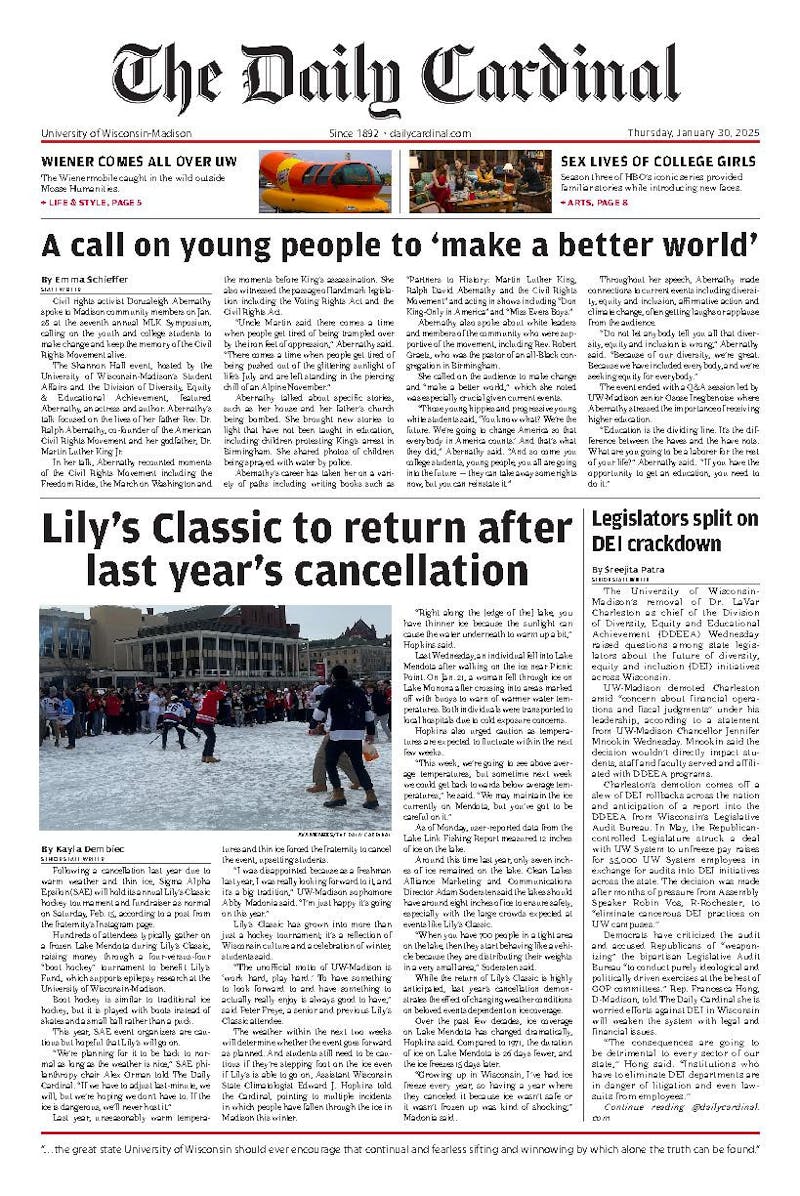The Act 10 controversy, which began in 2011 with swarms of people storming the state Capitol in protest of almost every state unions’ loss of collective bargaining rights, saw another victory for Gov. Scott Walker Wednesday as a federal judge threw out a union-filed case challenging the legislation.
The case, brought by several Wisconsin unions, including an AFL-CIO affiliate, challenged Act 10’s provisions that unions were restricted to negotiating their wages and could only be recertified with the state if a majority of its members supported the unions at annual elections. The unions challenged the legislation on the grounds it violated their constitutionally established First Amendment rights by setting two standards for potential wage raises, one that would keep wages lower for union workers and one that allows higher raise for individual workers.
U.S. District Court Judge William Conley found Act 10 did not violate the unions’ First Amendment rights, despite the disparity in potential wage raises.
State Attorney General J.B. Van Hollen, whose office represents the state in such cases, said in a statement the decision proves Act 10 is constitutional “in all respects.”
“I appreciate decisions like this that follow the law, and I look forward to bringing the remaining state court challenges before the Wisconsin Supreme Court, where we expect Act 10 to be upheld once again,” Van Hollen said in the statement.
Wisconsin State AFL-CIO President Phil Neuenfeldt called the ruling “disappointing” and reiterated his belief that the collective bargaining rules infringe upon state workers’ rights in a statement Wednesday.
Two separate cases involving Madison teachers and state law enforcement unions are still pending in state courts.





